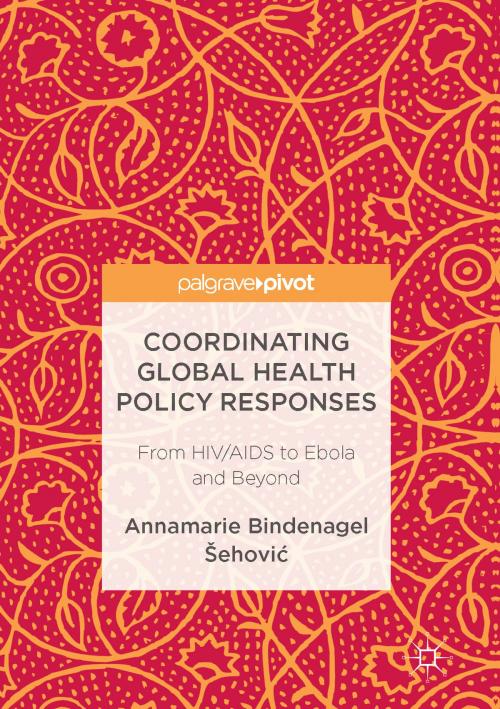Coordinating Global Health Policy Responses
From HIV/AIDS to Ebola and Beyond
Nonfiction, Social & Cultural Studies, Political Science, Government, Public Policy, Social Science| Author: | Annamarie Bindenagel Šehović | ISBN: | 9783319520063 |
| Publisher: | Springer International Publishing | Publication: | May 23, 2017 |
| Imprint: | Palgrave Macmillan | Language: | English |
| Author: | Annamarie Bindenagel Šehović |
| ISBN: | 9783319520063 |
| Publisher: | Springer International Publishing |
| Publication: | May 23, 2017 |
| Imprint: | Palgrave Macmillan |
| Language: | English |
This book identifies the main challenges to confronting global health (in)securities at three levels. First, at the level of zoonosis, to which HIV and Ebola, as well as H1Nn, MERS-CoV, and SARS belong, and which promise to continue to emerge. Second, at the level of the spread of these across bio-, ecological and political boundaries and borders, particularly nationally. These present challenges not only in terms of immunities, but also in terms of rights – who is eligible for treatment under whose responsibility? Finally, at the international level of global administration, presenting a challenge in terms of coordinated public health, legal, political, and economic response. The book develops coordinated policy recommendations for meeting these challenges in a globalized world, and examines the unique opportunities and challenges associated with the co-administration of the good of public health by both nation states and non-state actors. This book will be valuable read for students of Public Policy, Health Policy and Management, International Relations and Global Governance.
This book identifies the main challenges to confronting global health (in)securities at three levels. First, at the level of zoonosis, to which HIV and Ebola, as well as H1Nn, MERS-CoV, and SARS belong, and which promise to continue to emerge. Second, at the level of the spread of these across bio-, ecological and political boundaries and borders, particularly nationally. These present challenges not only in terms of immunities, but also in terms of rights – who is eligible for treatment under whose responsibility? Finally, at the international level of global administration, presenting a challenge in terms of coordinated public health, legal, political, and economic response. The book develops coordinated policy recommendations for meeting these challenges in a globalized world, and examines the unique opportunities and challenges associated with the co-administration of the good of public health by both nation states and non-state actors. This book will be valuable read for students of Public Policy, Health Policy and Management, International Relations and Global Governance.















